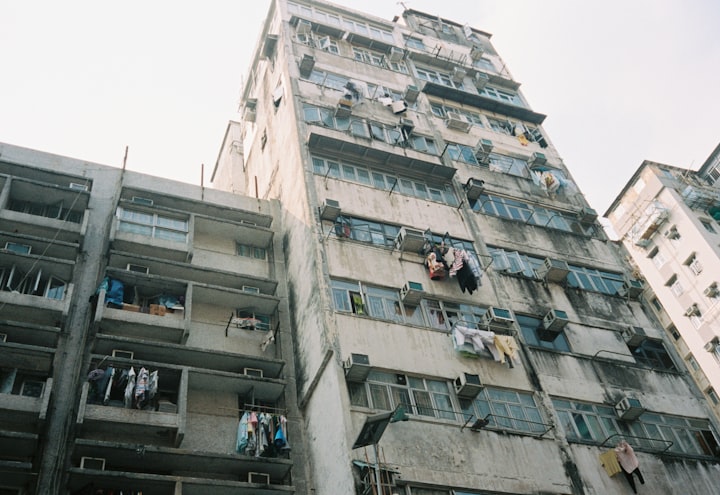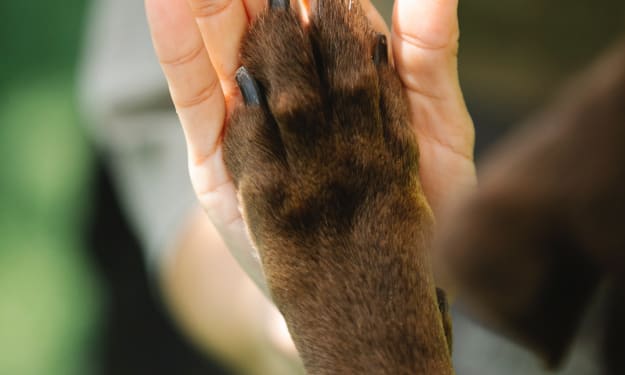The Connection Between Poverty and Mental Health in Minority Communities
The connection between poverty and mental health in minority communities is an issue that has been largely ignored in the past but is becoming increasingly more important to recognize.
Racial profiling and poverty are two key factors that can significantly affect a person’s mental health and well-being. As a result, there is a need to understand the psychological impact of poverty and racial profiling on minority communities, and how this affects their overall mental health.
Disproportionate Poverty Rates Among Minorities
It is no surprise that there is a strong correlation between poverty and mental health in these communities. There are many factors that contribute to this, including background, welfare, social status, and access to resources.
For example, African Americans make up 13% of the U.S. population, yet they make up 22% of people living in poverty. Additionally, African Americans are far more likely to live in food deserts and lack access to fresh produce and other necessary items for healthy living. This lack of access to resources can lead to higher levels of depression and anxiety for people of color, as compared to their white counterparts.
Furthermore, disparities in wealth and income can affect mental health by impacting the ability to obtain basic necessities like food and shelter, as well as providing security for oneself and one’s family. These disparities also lead to gaps in educational attainment and job opportunities, which then leads to lower wages and poorer overall living conditions. All of these factors contribute to an increased risk of mental health issues among minority populations.
It is clear that there is a direct link between poverty and mental health in minority communities. Systemic racism has created a disadvantage cycle that only perpetuates inequality and poverty rates among people of color. If we are to address this issue, it is essential that we look at the root causes of poverty in order to create long-term solutions that will improve the lives and well-being of minority populations.
Lack Of Access To Quality Mental Healthcare
Government-assisted healthcare provides low-quality services, further exacerbating the mental health of people living in poverty. A lack of financial security leads to feelings of desperation, hopelessness, and a lack of acceptance. People in minority communities may suffer from poor mental health due to economic instability, leading to further economic and social struggles.
This is why it is important to ensure that mental health services are accessible and affordable for all individuals regardless of economic status or ethnicity. Everyone deserves quality mental healthcare that helps them cope with their situation and improves their overall quality of life.
Through proper access to resources and support, individuals can gain acceptance and break the cycle of poverty and mental illness. Poor health insurance limits the opportunities available for mentally ill persons. Poor quality care leads to more hardships when coupled with a lack of recognition in society and scarcity of available work. Ensuring better access to welfare benefits and health insurance would decrease issues such as poor mental health among those living below the poverty line.
The Connection Between Racial Profiling And Mental Health In Minorities
Minority communities are disproportionately affected by systemic racism. Poor housing, a lack of resources, and the introduction of drugs, liquor stores, and STDs are some of the factors affecting minority communities. Lack of community centers, quality education, and access to hospitals can also contribute to feelings of anxiety and depression among minority communities. Racial profiling can have a detrimental effect on mental health, and the disparities between white privileged communities and minority communities can be quite vast.
Minorities with lower incomes and a lack of insurance are less likely to receive access to quality mental health care, leading many to seek alternatives through alcohol and drugs to make their everyday life a little more manageable. Minorities with low income may suffer from increased levels of stress because they might not have health insurance which makes finding quality medical treatment difficult. Racial discrimination is linked to higher rates of psychological distress including depression, anxiety, PTSD, and other mental health disorders that could interfere with social functioning.
Lower socioeconomic status has been linked to poorer health outcomes including poor physical health outcomes such as cardiovascular disease or diabetes mellitus and poorer psychological outcomes such as higher levels of stress and depression. Many people who live in poverty report experiencing more chronic conditions like asthma or diabetes than wealthier people living in the same area because they cannot afford the necessary treatment for these diseases.
The Difference Between Quality Health Insurance vs. Welfare Insurance
Compared to those with quality health insurance, those who rely on welfare insurance tend to have lower access to mental health services due to their social status. Welfare insurance often has less coverage than quality health insurance, and the lack of coverage can have a negative effect on the overall mental well-being of individuals. In addition, those with welfare insurance may be unable to afford treatments such as therapy or medications prescribed for mental health issues. This can lead to increased mental distress, which can significantly affect an individual's life.
The disparity between those with quality health insurance and those with welfare insurance is further magnified when looking at minority communities. Since minority communities are often disproportionately represented in low-income households, they are more likely to be living in poverty and relying on welfare insurance for their healthcare needs. This creates a situation where the lack of access to mental health services can be extremely damaging to their mental health and well-being.
It is essential that those in minority communities have access to quality health insurance so that they can access the mental health services they need. Without this access, it is highly likely that the mental health of individuals in these communities will continue to suffer.
Possible Solutions To Address The Issue For A Better Life
There is a strong connection between poverty and mental health in minority communities. Those living in lower socioeconomic backgrounds, especially those of color, have been disproportionately impacted by the effects of poverty on their mental health. The lack of access to resources such as adequate health care, higher education, and even basic needs like food and housing can lead to feelings of anxiety, depression, and low self-worth.
Unfortunately, many minority communities do not have access to the same resources as those from white privileged backgrounds. This leads to a disparity in access to quality mental health care. Without proper care and resources, mental illness can become more pronounced and lead to more serious consequences.
Fortunately, there are steps we can take to address the issue of poverty and its impact on mental health for minority communities. These include improving access to health insurance, increasing access to quality mental health services, providing educational and economic opportunities, and promoting social status. Providing access to these resources can help empower individuals and reduce the burden of poverty-related mental health issues. Additionally, providing support services such as therapy and counseling can help individuals build resiliency and manage their mental health better.
Overall, it is essential to recognize the connection between poverty and mental health in minority communities and take action to reduce its impact. With proper resources and support, we can help ensure that everyone has the chance to live a healthy life.
Below Are Some Ways To Make Extra Income:
Get Paid By taking Photos And Selling Them Like I Do
Online Social Media Jobs That Pay $25-50 An Hour
Get Paid To Do Simple Online Writing Jobs. Start Today!
Need To Speak To An Online Therapist Or Lifecoach? <<Click This Link>>
About the Creator
Les Morgan
Mindful! www.mindpizza.com. Dedicated to discovering ways to assist those in need, from mental health to physical and financial health for overall increased mental well-being and a healthier lifestyle. We do the work, you do the healing.







Comments
There are no comments for this story
Be the first to respond and start the conversation.